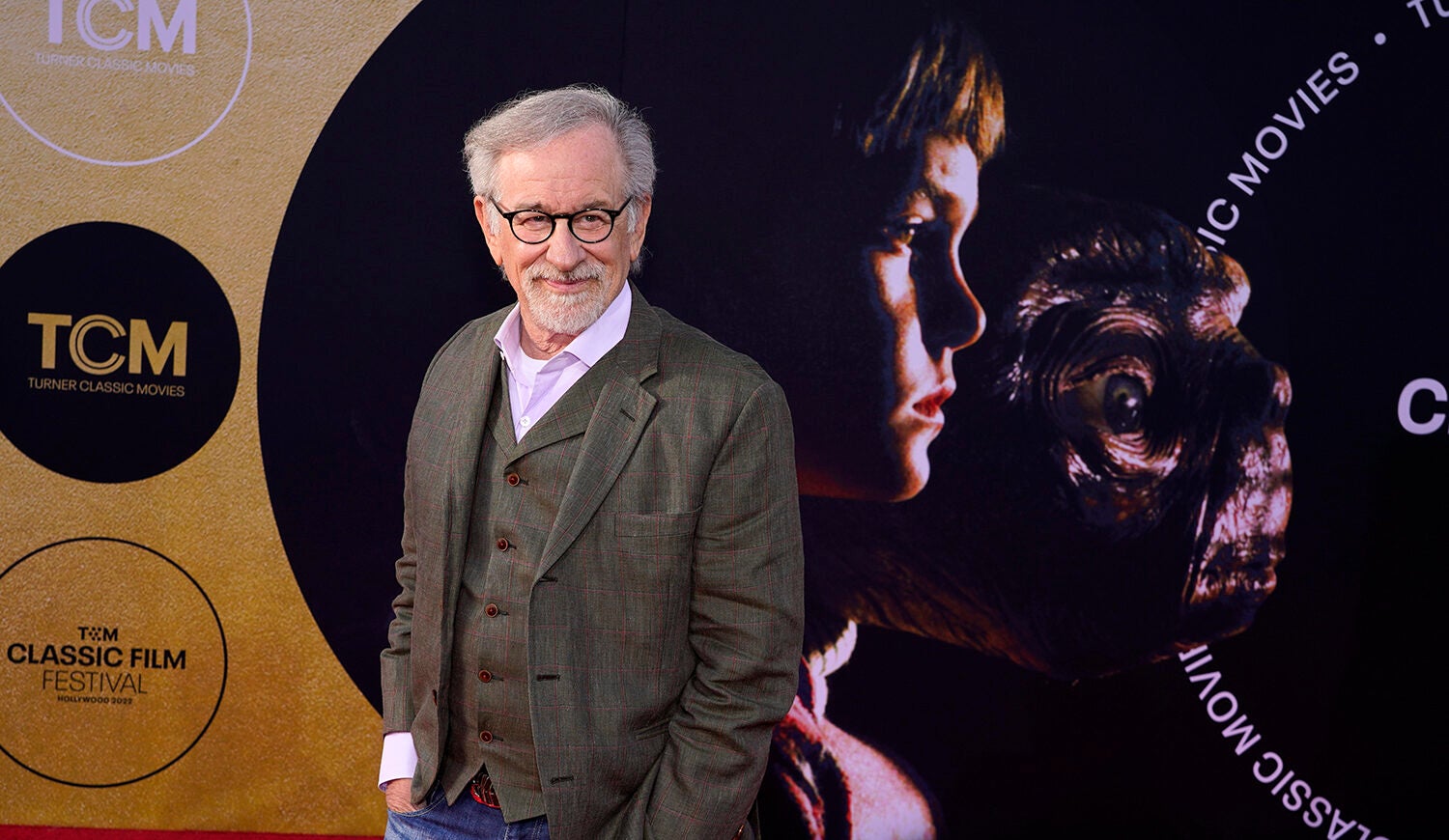After the surprise hit of Star Wars in 1977, every movie studio quickly rushed to get a foot in the sci-fi game. Projects were greenlit, budgets were increased — and the result was that in the summer of 1982, eight seminal movies of the genre hit the general public.
While some of the films like Ridley Scott’s “Blade Runner” and John Carpenter’s “The Thing” — which were released on the same day as it happens (June 25, 1982) — were critical failures at the box office, they went on to become part of the sci-fi cult-classic canon.
Author Chris Nashawaty has looked into this fascinating cinematic epoch in his book, “The Future Was Now: Mad Men, Mavericks, and the Sci-Fi Summer of 1982.”
News with a little more humanity
WPR’s “Wisconsin Today” newsletter keeps you connected to the state you love without feeling overwhelmed. No paywall. No agenda. No corporate filter.
He spoke with Doug Gordon of WPR’s “BETA” about what was in the water that led to classics like “E.T.,” “Star Trek II: The Wrath of Kahn,” “Tron” and “The Road Warrior” — and how this moment may have been both a historical turning point in Hollywood history and an unfortunate epicenter to our current IP-driven stasis at the box office.
This transcript has been edited for brevity and clarity.
Doug Gordon: You raised this very intriguing question in your book that I would like to quote: “What happens when a niche genre on the fringes of mass entertainment becomes the most dominant force in mass entertainment?” What’s the answer to your question?
Chris Nashawaty: I think that the lessons learned from that summer, 40-something years ago, are good and bad. On the one hand, we saw a real renaissance in genre filmmaking and these audiences – that were really hungry for new movies and to get their minds blown – were, in the immediate aftermath, treated to a lot of great movies.
The problem is that when you make movies for fans and you go for that blockbuster mentality trying to recreate “Star Wars,” what happens is you start making a lot of sequels. You follow the movies that make the most money with more of the same and the movies that don’t fall into that genre sort of fall through the cracks.
So, that is why in the summer of 2024, we’re getting a lot of superhero movies and sequels, but we’re not getting a lot of great movies or original movies for grown ups or, you know, terrific comedies that you got in 1982 like “Tootsie.” You just don’t see that kind of movie being really made anymore.
DG: Yeah, I think you’re absolutely right. Let’s talk about the groundbreaking movie, “Tron.” It was written and directed by a guy named Steven Lisberger. Where did Steven get the idea for “Tron‘”?
CN: Steven Lisberger was an animator coming out of Boston. He ran this little studio that was populated by hipster hippies who were still sort of the Woodstock generation and they thought about movies and filmmaking a little bit differently.
Lisberger was a big fan of the video game boom that was happening in the late ’70s, early ’80s, starting with “Pong” but going to “Space Invaders” and then “Asteroids.”
I think that his background in cutting-edge animation and video games — he sort of put those two ideas together and thought, “You know what? If I did this really cool, almost computer-generated movie, that’s a combination of live action and animation and set it in the world of video games.”
It’s really a movie that was tremendously ahead of its time. You know, it’s not my favorite movie, but there’s no denying the indelible impact it made at the time. I don’t think you’d have something like Pixar today without it.
DG: Yeah, and it’s interesting that it came from Disney’s Walt Disney Studios.
CN: Exactly. And it’s also worth remembering that Disney at the time was not the Disney of today.
In the early ’80s, Disney was really sort of a sleepy place that was on its last legs. You know, Walt Disney had passed away in 1966, and it was really leaderless and rudderless. They didn’t know where to go. They were just rereleasing these old, animated movies every summer. And I don’t know that had they not adapted to these new times the way they did with a willingness to take risks, that they’d even be around today.
DG: I was very interested to learn about John Carpenter’s making of “The Thing” based on the short story “Who Goes There” by John Wood Campbell Jr. What was it about Campbell’s story that intrigued Carpenter?
CN: I think that Carpenter grew up as a real sci-fi nerd. He read everything. He saw all the famous ’50s science-fiction pictures, including “The Thing from Another World,” which was the first movie that was made out of Wood’s story.
I think the thing that was so great about the story is that the same reason why a lot of people talked about rewatching “The Thing” during the pandemic. This is a movie with a real allegory that it’s almost like a shape shifter, like “The Thing,” it can adapt to any moment in the culture, whether it’s AIDs, whether it’s the pandemic, whether it’s about paranoia or mistrust with the government. All of these things, they’re really good metaphors for the movie.
It continues. With each new cultural moment, it feels relevant again.
DG: Of course, “The Thing” suffered from being released so close to another alien film, “E.T.” This has to be the undisputed winner of the summer of ’82, right?
CN: Yeah. And maybe the winner of the ’80s as a decade. I mean, it really was a movie that was more than a movie. It was an event. It was like a pop cultural religious experience. I mean, it’s hard to fathom if you didn’t live through it, but it really infiltrated and saturated the culture.
It’s obviously a great movie, but when it came out, I think it was No. 1 for 16 non-consecutive weeks. I mean, it really played through the end of the year. It was nominated for Oscars. It became the top grossing movie of all time. It really was as big as you could possibly get.







